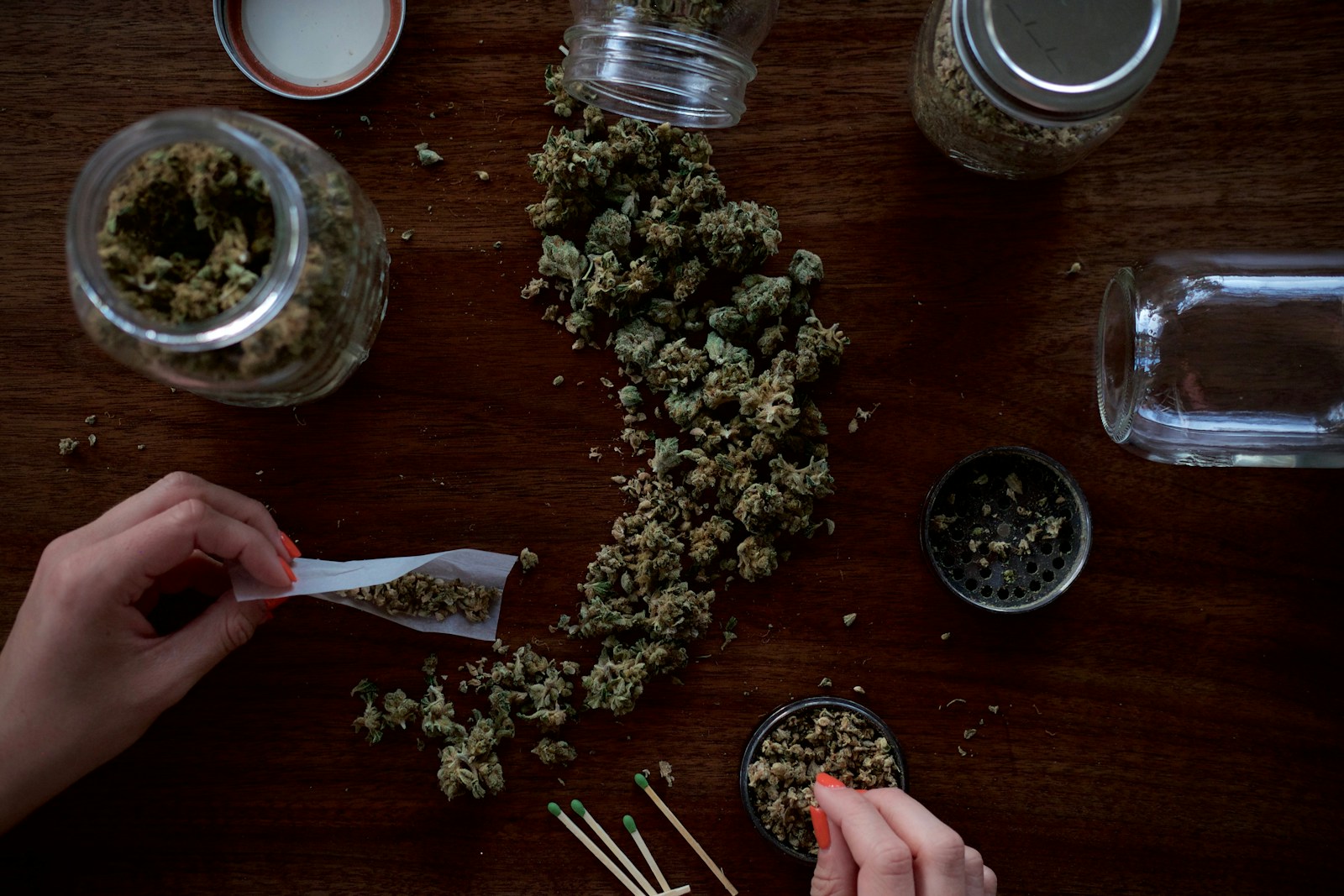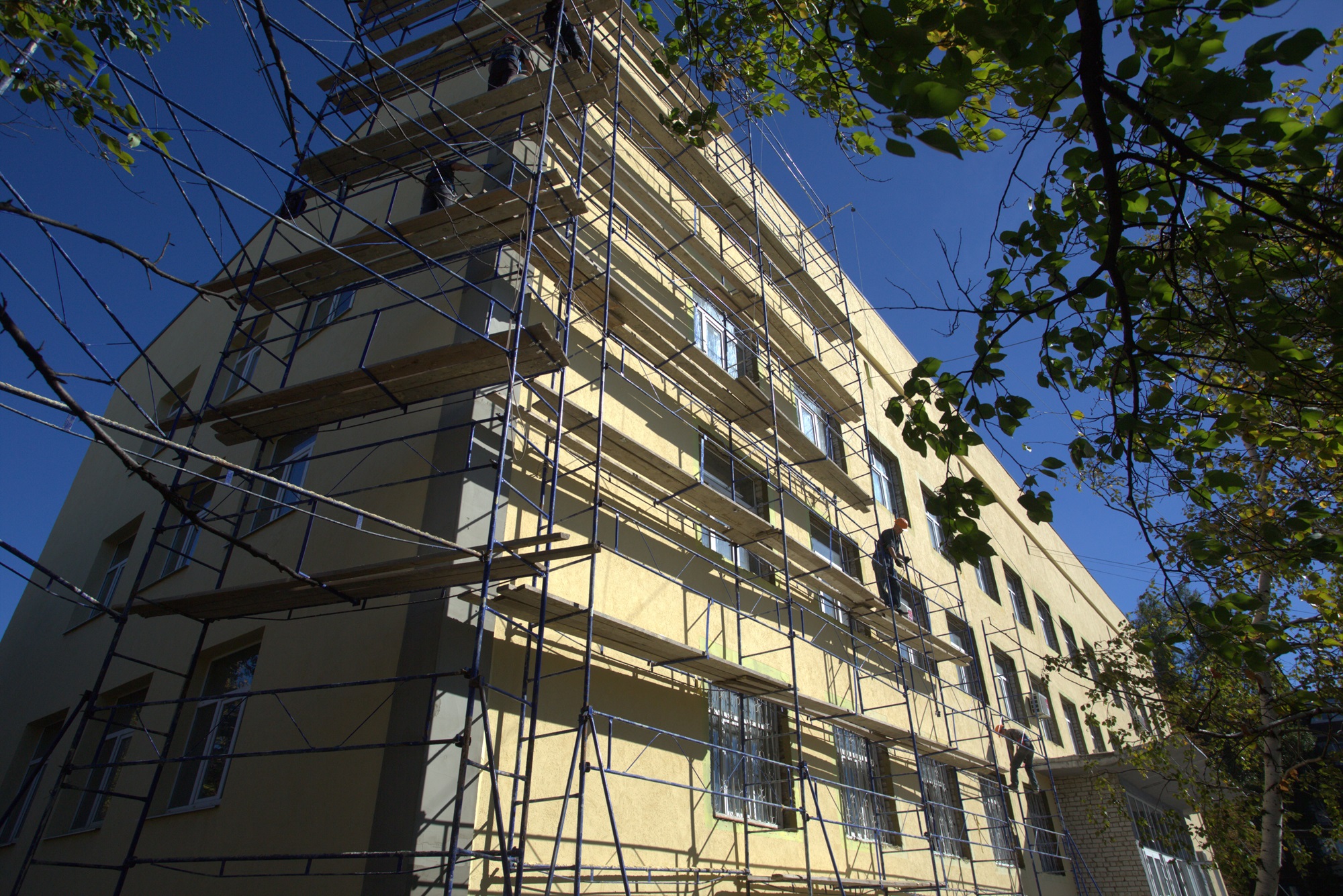Health & Society
Cat’s favorite place to nap is on its owner

If you’re a proud cat owner, you’ve probably already encountered this scenario: you’re cozying up on the couch or in bed, and your furry friend immediately climbs on top of you and starts napping. But why exactly is your body the preferred sleeping spot? Let’s take a look at the reasons behind this adorable (and sometimes uncomfortable) feline behavior.
1. Heat is irresistible
Cats are true “heat lovers”. Their normal body temperature range is around 38–39°C, which makes them sensitive to the cold. Your body radiates constant heat, making it the perfect “cat heater”.
Especially during the cold seasons, this desire for warmth becomes even stronger. You are their mobile radiator!
2. Your scent soothes them
Cats have an extremely sensitive sense of smell and recognize your scent. It brings them a sense of security and comfort. When they are on you, they literally immerse themselves in your familiar scent, which acts as a “cat’s lullaby.”
3. Territorial behavior
Cats are territorial animals and love to mark what they consider “theirs.” When they lie on you, they leave their pheromones – a way of declaring that you are part of their territory.
This is a kind of compliment: “You are mine and I love you.”
4. Proof of affection
Contrary to the opinion that cats are cold and distant, they are actually very affectionate towards their owners. Sleeping on you is an expression of trust and love.
This behavior is usually observed in cats that feel completely safe and comfortable in your presence.
5. Heartbeat
Cats love rhythmic sounds, and your heartbeat is one of them. It calms them and reminds them of the time when they were kittens, snuggled up next to their mother.
This explains why they often prefer to sleep on your chest, where they can hear the rhythmic beating.
6. Comfort and Viewpoint
Cats love high, protected places from which they can observe everything. Your body – be it your chest, legs or belly – is comfortable and offers them an ideal vantage point to control “their territory”.
What does this mean for you?
If your cat likes to sleep on you, it’s a great sign that she trusts you completely. You are her source of warmth, comfort and security.
What to do if it’s uncomfortable?
Although the behavior is endearing, it can sometimes be annoying – for example, when you wake up with a numb hand or a heavy feeling in your chest. Here’s what you can do:
• Provide alternatives: Arrange a cozy bed near you. Add a soft blanket or something with your scent to make it inviting.
• Restrict access to the bed: If you want to sleep peacefully, you can train your cat to use his own bed.
• Encourage daytime play: A tired cat is less likely to climb on you for a nap. Sleeping on you isn’t just comfortable for your cat—it’s a way for her to express her love. Your presence is her home, and your warmth is her sanctuary. So the next time your cat snuggles up to you, remember—she’s saying “I love you” in her own language.
Illustrative Photo by Pixabay: https://www.pexels.com/photo/close-up-photo-of-cute-sleeping-cat-416160/
Health & Society
The Toxic Reality of Cannabis A Cautionary Tale for Europe

As discussions around the legalization of cannabis gain momentum in various European countries, a troubling reality from California’s legal cannabis market serves as a stark warning. An investigation by the LA Times has unveiled a disturbing trend: many legal cannabis products are contaminated with illegal and hazardous pesticides, raising serious health concerns for consumers and the environment alike.
A Dangerous Harvest
In California, the legal cannabis industry is marred by the presence of toxic chemicals that pose significant health risks. A cannabis worker, who wished to remain anonymous, discovered he had been inhaling ortho-phenylphenol (OPP), a carcinogenic pesticide banned for use on cannabis. The level of OPP found in his pre-rolled joints was so high that it prompted the lab vice president to describe it as “disgusting.” This is not an isolated incident; the investigation revealed that California’s cannabis products are often a toxic mix of unregulated and illegal pesticides, compounding the risks associated with cannabis itself.
Cannabis is already linked to various health issues, including lung damage, psychosis, and an increased risk of heart attack. The presence of pesticides only exacerbates these dangers. The LA Times found 79 toxic chemicals in California cannabis products, including chlorfenapyr and pymetrozine, both of which are banned or heavily restricted in many countries, including those in Europe. These chemicals can lead to severe health problems, including cancers, neurological damage, and reproductive harm.
The European Perspective
As European nations consider legalizing cannabis, they must heed the lessons from California. The potential for similar issues to arise is significant, especially if regulatory frameworks are not robust enough to prevent the use of harmful pesticides. The casual use of illegal pesticides among cannabis growers in California highlights a concerning culture that could easily replicate in Europe if proper safeguards are not established.
Moreover, the environmental impact of pesticide-laden cannabis cultivation cannot be overlooked. Cannabis plants act as “super-sponge” plants, absorbing and concentrating harmful substances from their surroundings. This not only poses risks to human health but also threatens local ecosystems, as contaminated runoff can pollute water sources and harm wildlife.
A Call for Caution
The findings from California’s legal cannabis market should serve as a cautionary tale for European policymakers. Legalizing cannabis without stringent regulations could lead to a public health crisis, as consumers unknowingly expose themselves to toxic substances. The current state of California’s cannabis industry demonstrates that the promise of a regulated market does not guarantee safety.
As Europe moves forward with discussions on cannabis legalization, it is crucial to prioritize public health and environmental safety. The potential risks of legalization far outweigh any perceived benefits, especially when considering the toxic realities already seen not only in California but also in the Netherlands. Without careful consideration and robust regulatory measures, the legalization of cannabis will become a dangerous gamble, echoing the toxic realities that threaten both public health and the environment.
Health & Society
Ukraine: EIB provides €55 million to reconstruct social infrastructure

- The funding will enable Ukrainian communities to continue implementing 151 sub-projects in 2025 and beyond, focusing on schools, kindergartens, hospitals, social housing, heating and water systems and other social infrastructure.
- Backed by an EU guarantee, the funding is earmarked for the EIB’s Ukraine Recovery Programme.
- In 2024, several sub-projects were completed, including a sewer pressure collector in Zhmerynka, Vinnytsia Oblast, that was finalised on 25 December and will provide over 33 000 residents with reliable wastewater management and improved sanitation.
The European Investment Bank (EIB) has provided €55 million in EU guarantee-backed funds under the Ukraine Recovery Programme to reconstruct hospitals, social housing, educational facilities, heating, water and waste systems, and other critical social infrastructure in 2025 and beyond. The funding can be used for any of the 151 sub-projects allocated under the programme across Vinnytsia, Dnipropetrovsk, Zhytomyr, Kyiv, Kirovohrad, Mykolaiv, Odesa, Poltava, Sumy, Kharkiv, Cherkasy and Chernihiv oblasts. This contribution is part of the EIB’s Ukraine Solidarity Urgent Response package developed in close partnership with the European Commission, highlighting the European Union’s unwavering support for Ukraine’s recovery.
In 2024, several sub-projects were successfully completed under the programme, including a water supply facility in Bucha, Kyiv Oblast, two schools in Vinnytsia Oblast, a paediatric infectious disease department in Zhytomyr Oblast, and now a sewer pressure collector in Zhmerynka, Vinnytsia Oblast. The sewer collector was completed on 25 December at a cost of €526 000. It involved rebuilding a 2.64 km sewer pipeline with durable pipes and advanced sensors. This upgrade will ensure reliable wastewater transport for the next 50 years, benefiting over 33 000 residents – including 4 000 displaced people – by enhancing sanitation, public health and environmental protection.
The Ukraine Recovery Programme is a €340 million EIB framework loan supported by an EU technical assistance grant and aiming to help communities rebuild vital social infrastructure. It is being implemented by the Ministry for Development of Communities and Territories of Ukraine in cooperation with the Ministry of Finance, with local authorities managing recovery sub-projects and UNDP Ukraine providing technical assistance to support quick implementation.
EIB Vice-President Teresa Czerwińska, who is responsible for the Bank’s operations in Ukraine, said: “Together with our EU partners, the European Investment Bank remains steadfast in its commitment to Ukraine’s recovery and rebuilding. This €55 million disbursement under the Ukraine Recovery Programme will help communities restore critical infrastructure, renewing schools, hospitals, heating, housing, water and waste facilities, and other essential services for all. Despite the challenges of war, Ukraine continues to rebuild, and we are glad to support this effort.”
European Commissioner for Economy and Productivity, Implementation and Simplification Valdis Dombrovskis said: “The EU’s steadfast commitment to supporting Ukraine and its people in the face of Russia’s illegal and brutal war comes on every level: political, financial, military and humanitarian. It includes the reconstruction of small-scale community infrastructure as well. That is why we fully support this new €55 million Ukraine Recovery Programme disbursement for hospitals, schools, housing, heating and water systems, as well the opening of a small wastewater treatment plant in Vinnytsia Oblast. We look forward to continuing to work closely with Ukraine, the EIB and all other partners to support Ukraine further in meeting its needs.”
Deputy Prime Minister for Restoration of Ukraine — Minister for Development of Communities and Territories of Ukraine Oleksii Kuleba said: “The EU’s support is critical to our efforts to rebuild key infrastructure across the country. This funding from the European Investment Bank will help us restore schools, hospitals and essential utilities, significantly improving the quality of life of millions of Ukrainians. Together, we are laying the foundation for a resilient Ukraine, where communities can rebuild and move forward despite the challenges of war.”
Ukraine’s Minister of Finance Sergii Marchenko said: “Rebuilding our cities and strengthening our economy are critical for Ukraine’s recovery. We appreciate the European Investment Bank’s funding of recovery programmes, which restore vital infrastructure and improve the well-being of our people. The EU’s steadfast support is essential as we work to rebuild and ensure a better future for our communities despite the challenges we face.”
UNDP Resident Representative in Ukraine Jaco Cilliers said: “At UNDP, we’re dedicated to empowering communities by leveraging our technical expertise and strategic partnership with the EIB to foster transparent and sustainable recovery. With the successful completion of several sub-projects under the Ukraine Recovery Programme, we’re working alongside Ukrainian municipalities and the government to rebuild resilient infrastructure that truly meets the needs of the people. Together, we’re striving to ensure a brighter, more inclusive future for all Ukrainians.”
Background information
The European Investment Bank (ElB) is the long-term lending institution of the European Union, owned by its Member States. It finances investments that contribute to EU policy objectives. EIB Global is the EIB Group’s specialised arm devoted to increasing the impact of international partnerships and development finance, and a key partner of the Global Gateway. We aim to support €100 billion of investment by the end of 2027, around one-third of the overall target of this EU initiative. With Team Europe, EIB Global fosters strong, focused partnerships, alongside fellow development finance institutions and civil society. EIB Global brings the Group closer to people, companies and institutions through our offices around the world.
EIB recovery programme in Ukraine
The upgrade of the sewer pressure collector in Zhmerynka, Vinnytsia Oblast, was carried out under the Ukraine Recovery Programme, one of the European Investment Bank’s (EIB) multi-sectoral recovery framework loans. Overall, the EIB is investing in three recovery programmes totalling €640 million, complemented by up to €15 million in EU grants. These programmes empower Ukrainian communities to restore social infrastructure and improve living conditions for their people and the internally displaced persons they host. The Ministry for Development of Communities and Territories of Ukraine, jointly with the Ministry of Finance, coordinates and oversees the implementation of the programmes, while local authorities and self-governments are responsible for fully managing recovery sub-projects. The United Nations Development Programme (UNDP) in Ukraine provides technical assistance to Ukrainian communities in implementing recovery sub-projects on the ground along with independent monitoring to ensure transparency and accountability.
Health & Society
Baha’i Mahvash Sabet recovering from heart surgery will be imprisoned again in Iran

Mahvash Sabet is recovering from heart surgery: Iran’s government must let her do so in peace by never returning her to prison.
GENEVA—23 December 2024—Mahvash Sabet, a 71-year-old Iranian Baha’i prisoner of conscience jailed by the Islamic Republic for over 13 years for her beliefs—who has previously been denied proper medical care in prison, despite severe and worsening health issues, and has often been barred from hospital treatment regardless of her life-threatening ailments—has undergone open-heart surgery.
The never-ending story
Once her recovery period is over, however, Ms. Mahvash Sabet will be recalled to prison to serve the rest of her second 10-year jail term.
The Baha’i International Community (BIC) calls for the immediate and unconditional release of Ms. Sabet, the canceling of her prison sentence, and assurances from Iranian authorities that she will never be returned to jail.
Ms. Mahvash Sabet was a member of an informal leadership group of the Baha’i community before being arrested in 2008 and imprisoned for 10 years along with six other colleagues. Baha’is in Iran have faced systematic persecution across all walks of life—a situation which for more than 45 years has been condemned by the United Nations and the international community.
The previous UN Special Rapporteur on human rights in Iran, Javaid Rehman, reported that Baha’is were targeted with “genocidal intent” by the Iranian government. Human Rights Watch called the treatment of the Baha’is in Iran the “crime against humanity of persecution”.
Ms. Mahvash Sabet was arrested for a second time in July 2022—despite suffering from a severe Covid infection and other health issues that needed medical attention. In prison, she earned the respect and affection of her fellow inmates, many of whom saw her as a mother figure, such as the journalist Roxana Saberi who has called for Ms. Sabet’s release on many occasions.
Now, after more than 13 years in prison and repeated and severe physical and emotional maltreatment, as well as interrogations at the hands of the Iranian authorities, Ms. Mahvash Sabet is recovering from heart surgery caused by years of medical neglect and abuse.
Multiple doctors have confirmed, in writing, that her continued detention would lead to a collapse in her health; this is just what has happened.
In November 2022, after her second arrest, doctors confirmed in writing that Ms. Mahvash Sabet suffered from “osteopenia, osteoporosis, and tendinitis,” and that, “owing to the advancing trend of her illness, requiring repeated visits, tolerating prison conditions will be very difficult for her and will lead to a rapid deterioration of her illness”. A second medical report said Ms. Sabet was suffering from “severe allergic asthma and chronic bronchitis” and that she was “not capable of withstanding her sentence”.
The Iranian authorities disregarded these warnings. Ms. Mahvash Sabet now faces a return to Evin Prison after her heart surgery to serve the rest of her sentence—almost eight more years behind bars. The Baha’i International Community insists that her outstanding jail term should be canceled and she must be freed to recuperate in peace.
“Ms. Sabet has faced threatening health conditions for years and has not received the medical attention she has required,” said Simin Fahandej, BIC Representative to the United Nations in Geneva. “Instead of giving her the care she needs, the government sent her to solitary confinement, with long and harsh interrogations. Ms. Sabet should have never been in prison in the first place and once she faced health conditions in prison, should have been released. The Iranian government must now rectify this, releasing her from prison immediately so that she can receive the care she needs with her family.”
Ms. Sabet’s health crisis mirrors similar cases faced by dozens of other Baha’is who are unjustly detained on baseless charges. The BIC has received dozens of reports of Iranian authorities ignoring the health concerns of detained Baha’is—in a clear violation of the right of detainees to medical care.
“The world knows Mahvash Sabet as a fearless champion of human rights, and we are inspired by her fortitude in the face of cruelty and injustice,” Ms. Fahandej said. “But we are heartbroken by the way her life and health have been severely impacted and by the Iranian government’s cruel persecution of her, as well as her fellow Baha’is, and the whole Baha’i community. We call for an end to the cruelty and discrimination that would allow a 71-year-old, who already spent 13 years in prison to continue to be persecuted with such grave injustice.”
The United States Commission on International Religious Freedom also said, on December 13, that it was “deeply concerned by the hospitalization of Baha’i leader Mahvash Sabet,” adding that Iranian authorities had “repeatedly tortured” her in prison.
In April 2023, after her second imprisonment, reports emerged that Ms. Mahvash Sabet’s knees had been broken by security officials during an Evin Prison interrogation. Ms. Sabet was forced to recover from this grave injury within the prison walls.
“Imagine entering a time of life when most people spend more time with their families, but instead staring at the walls of a cell, while your heart and body crumble and your heart fails. If you can imagine this then you can understand a piece of the injustice Mahvash continues to endure,” Ms. Fahandej added.
“The Iranian government now has a chance to take a positive step by confirming Mahvash Sabet will never again step inside prison,” Ms. Fahandej said. “Mahvash deserves to recover from heart surgery with her family—and neither she nor any Baha’i or other prisoners of conscience should suffer through a single minute more of brutality for their beliefs.”
More on Mahvash Sabet
● Dr. Shirin Ebadi, a Nobel Peace Prize laureate and defense lawyer for Mahvash Sabet and the other Baha’i leaders during their 2008 trial, said there was “not a shred of evidence” to prove any of the allegations regarding national security, “spreading corruption on earth,” and other charges, put forward by the Iranian government.
● In 2017, Ms. Mahvash Sabet was named by International PEN as its “International Writer of Courage” for a series of poems she had written inside Evin Prison. Before her first imprisonment, she worked as an educator for the Baha’i Institute for Higher Education, which offers university-level instruction to young Iranian Baha’is, who are barred from tertiary institutions because of their faith.
● One of Ms. Mahvash Sabet’s fellow inmates in Evin Prison, the Nobel laureate Narges Mohammadi, has on several occasions spoken out in defense of Ms. Sabet and other Baha’i prisoners.
● In one statement, published in January 2023 from inside Evin Prison, Ms. Mohammadi remembered the moment she saw Ms. Sabet returned to Evin Prison, saying “Mahvash stood there, coughing repeatedly, pale, and still wearing the summer clothes she had on during her arrest on 31 July,” noting her lack of warm clothing during the winter months, in a clear confirmation of the neglect shown by prison authorities for Ms. Sabet’s health.
● The US-based Iranian women’s rights activist, Masih Alinejad, also published in December 2023 a video statement in which she read from a letter by Ms. Sabet and praised her courage in the face of persecution and injustice.
More on the persecution of the Baha’is in Iran
Recent months have seen a rise in international attention and concern over the human rights of Baha’is in Iran and, in particular, over the situation of Iranian Baha’i women.
● The latest development in Ms. Sabet’s health situation comes just weeks after 18 United Nations experts criticized the Iranian government for a rise in attacks on Baha’i women. Iranian Baha’i women face intersectional persecution as women and as Baha’is.
● Earlier this week, meanwhile, the United Nations General Assembly passed its most recent resolution criticizing the Islamic Republic for its human rights violations and rebuking Iran’s government for subjecting Baha’is to “a continued increase and the cumulative impacts of long-standing persecution, including attacks, harassment, and targeting, who face increasing restrictions and systemic persecution by the Government of the Islamic Republic of Iran on account of their faith and have been reportedly subjected to mass arrests and lengthy prison sentences, as well as the arrest of prominent members and increased confiscation and destruction of property”.
● A recent launch of a new report, Outsiders: Multifaceted Violence Against Baha’is in the Islamic Republic of Iran by the Abdorrahman Boroumand Center for Human Rights in Iran, UN Special Rapporteurs including Professor Mai Sato, the new Special Rapporteur on human rights in Iran, and Professor Nazila Ghanea, Special Rapporteur on freedom of religion or belief, spoke about Iran’s systematic repression of the Baha’i community, particularly targeting Baha’i women.
● A grim example of recent persecution came in October when 10 Baha’i women in Isfahan were sentenced to a combined total of 90 years in prison. The women were convicted of “spreading propaganda” and acting against the Iranian government after organizing educational and cultural activities—such as language, art, and yoga classes, including for children—which Iranian authorities deemed “deviant educational activities”.
● Recent international scrutiny also includes a letter signed by 18 UN experts in October, rebuking Iran for targeting Baha’i women through home raids, travel bans, and prolonged prison sentences. The experts, including UN Special Rapporteurs on violence against women and girls, freedom of religion or belief, and freedom of opinion and expression, called the government’s actions “a continuous pattern of targeted discrimination.” And earlier this year a report by Human Rights Watch, titled The Boot on My Neck, found Iran’s 45-year systemic repression of Baha’is to be the “crime against humanity of persecution”.
-

 EU & the World7 days ago
EU & the World7 days agoIs January 9 a Federal Holiday? What to Know About Jimmy Carter’s Funeral
-

 Sports5 days ago
Sports5 days agoNBA, LeBron James makes 38 and joins Michael Jordan
-

 Sports5 days ago
Sports5 days agoSimone Inzaghi gloats but trembles over Marcus Thuram
-

 Health & Society3 days ago
Health & Society3 days agoThe Toxic Reality of Cannabis A Cautionary Tale for Europe
-

 EU & the World7 days ago
EU & the World7 days agoWhen Is Chinese New Year 2025? Lunar New Year Details
-

 EU & the World6 days ago
EU & the World6 days agoWhy Is Blake Lively Suing Justin Baldoni? Their ‘It Ends With Us’ Lawsuits
-

 Sports6 days ago
Sports6 days agoArsenal begins 2025 with a comeback
-

 Sports6 days ago
Sports6 days agoNBA, New York no longer stands still: nine wins in a row
















